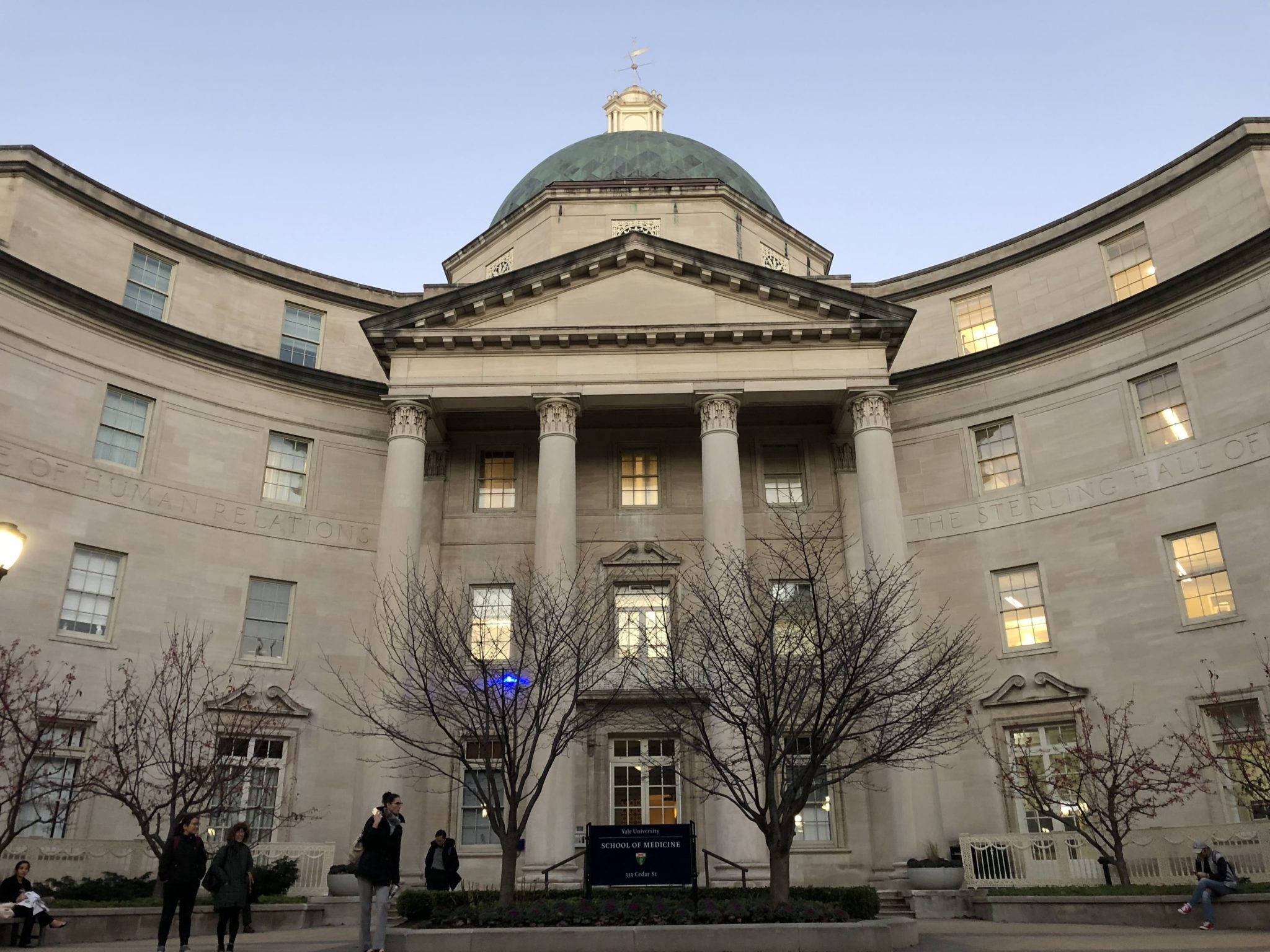
Jeremy Uys, Contributing Photographer
Sidi Chen, an assistant professor and researcher at the Yale Cancer Center, has received a grant from the Alliance for Cancer Gene Therapy to develop a clinical gene therapy technique to attack cancer.
The ACGT has awarded him a $500,000 research grant to study a potential gene therapy called Multiplexed Activation of Endogenous Genes as Immunotherapy. The technique uses localized genetic modification to increase cancer cells’ exposure to antigens — proteins located on the cell surface that alert the immune system to the presence of a foreign pathogen and serve as a binding site for antibodies. According to Chen, even though MAEGI is still at an early stage in development, it is an extremely important advancement in cancer treatment.
“Current therapies still face grand challenges of non-responsiveness or resistance in large patient fractions, where there are major unmet needs,” Chen wrote in an email to the News. “Therefore developing novel and potentially transformative therapeutic strategies is critical.”
The gene therapy will work to target gene expression in cold cancers, which either do not present as many antigens on their cell membranes or are able to disguise them as self-antigens — those that humans’ immune systems recognize in their own cells. The aim of the technique is to make cold cancer cells over-express their genes and be more recognizable by the immune cells, similar to hot cancers.
Michael Lotze, the recently appointed chairman of the ACGT’s scientific advisory council, praised Chen’s grant proposal and explained the importance of a clinical component in the projects that the ACGT accepts, which was founded by Barbara and Edward Netter.
“Mr. and Mrs. Netter established the ACGT with the sole purpose of trying to drive things from the laboratory into the clinic,” Lotze said. “If projects fail to show that they are a few steps away from the clinic, or better yet, in the clinic, then they are not considered for funding.”
Over the next few years, Chen will provide the board with yearly reports and supporting materials to prove that he is making progress and the project is moving toward a clinical application.
According to Lotze, the advisory board was impressed with Chen’s supporting data, which already showed the promise of the therapy in future clinical settings.
“The whole advisory board was very impressed by the already established novelty technology,” Lotze said. “Trials were run to try and see whether it could be done in vivo, and had really extraordinary data that warranted the award he received.”
Medha Majety ’23, an undergraduate research assistant in Chen’s lab, believes the lab will continue working toward the goal of having MAEGI technology available to patients as a treatment.
According to Majety, there is a lot to explore in the science of gene therapy. The inherent health risk of testing these techniques in humans means there is still much work needed before the technology could be used as a treatment.
“The next logical step would be to test the therapy in live mice,” Majety said. “Then some human clinical trials, if it gets to that point.”
One specific area to be explored is personalized medicine, where a patient’s own genetic material is used to develop the needed therapy, according to Majety.
Chen believes the technique will enable scientists to develop new innovative forms of cancer therapies that unite immunotherapies and other cancer treatment techniques.
“This award catalyzed our research and enabled us to develop precision MAEGI therapy in pancreatic cancer, a highly challenging disease,” Chen wrote. He explained that his goals are to “develop versatile, efficacious, safer, and manufacturable gene therapies for cancer.”
Lotze believes that future research should aim to integrate both the immunological and oncological aspects of cancer treatment. He said he will make it a priority to accept proposals that consider the role the immune cells play in the relationship between the cancer and the host, and vice versa.
The Alliance for Cancer Gene Therapy was founded in 2001.
Beatriz Horta | beatriz.horta@yale.edu







